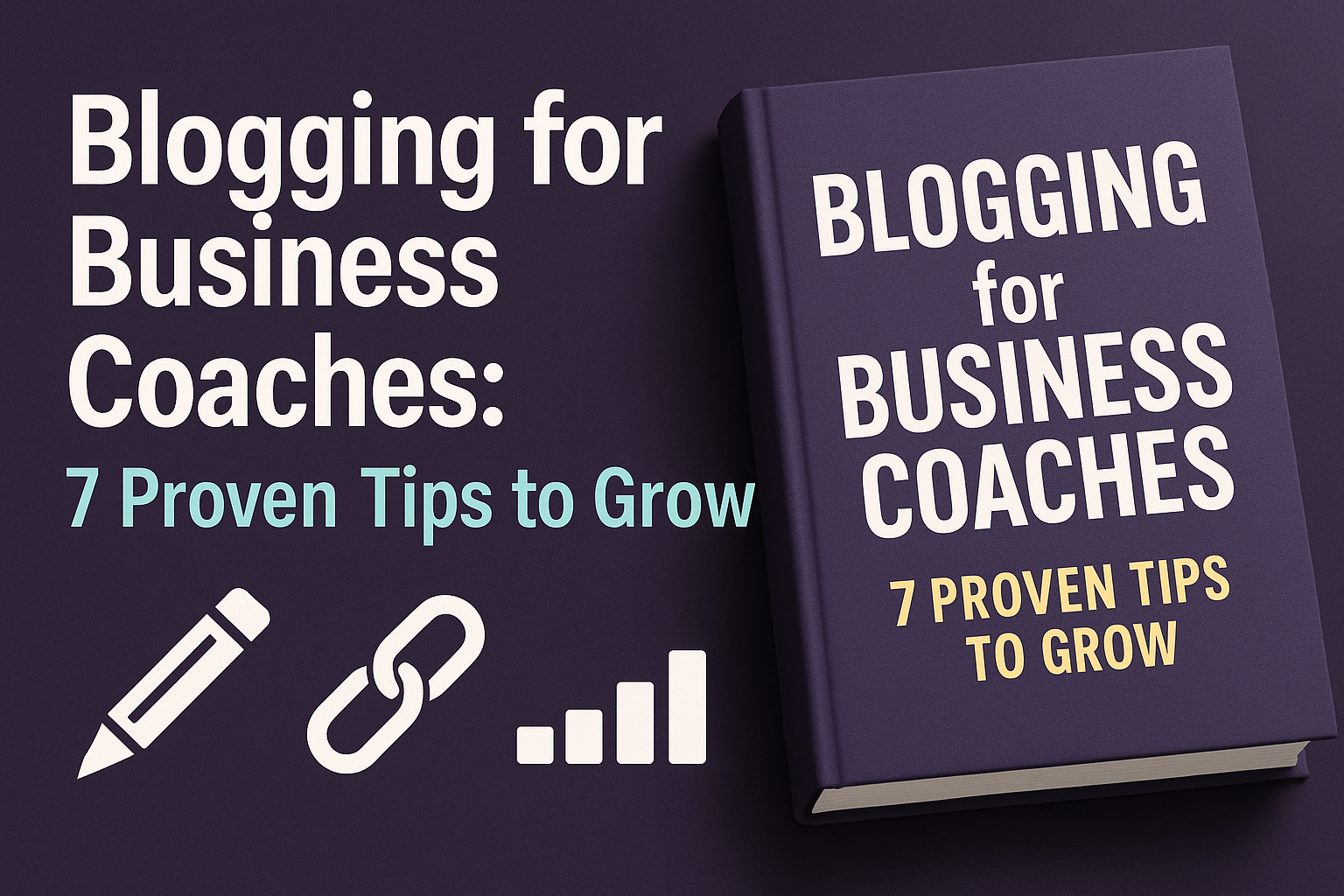
In the crowded world of online coaching, blogging for business coaches is one of the most overlooked yet powerful marketing tools. When done right, blogging doesn’t just boost SEO—it builds trust, attracts qualified leads, and positions you as an authority in your niche.
In fact, companies that blog regularly generate 67% more leads per month than those that don’t, according to HubSpot. Still think blogging is optional?
Here’s how to turn your coaching blog into a lead-generating machine.
Why Blogging Is a Business Coach’s Secret Weapon
Builds Authority and Trust
A well-written blog allows you to show, not just tell, that you’re an expert. It demonstrates your coaching style, experience, and thinking process—all while solving real problems your ideal client faces. According to Content Marketing Institute, blogs significantly boost brand recall and trust among coaching clients.
Attracts Organic Leads Consistently
Blog content, especially when optimized for SEO, works around the clock. By targeting keywords like “how to blog as a business coach” or “content strategy for coaches,” you can bring in consistent organic traffic with little ad spend.
7 Proven Blogging Tips for Business Coaches
1. Know Your Niche & Client’s Pain Points
Don’t try to be everything to everyone. Define who you serve—startup founders, solopreneurs, career changers—and then address their pain points specifically. The more precise, the better.
2. Use a Hook-Driven Headline Formula
Your headline is your first impression. Use headline formulas like:
- “X Mistakes [Audience] Make and How to Fix Them”
- “The Ultimate Guide to [Outcome] Without [Pain Point]”
Make them curiosity-driven and benefit-packed.
3. Add Personal Stories and Case Studies
Forbes reports that blogs using storytelling convert 2.5x better than those that rely purely on tips (source). Share before-and-after stories of your clients or your own journey. Readers connect with authenticity more than perfection.
4. End Every Post with a CTA (Lead Magnet or Discovery Call)
Don’t let traffic go to waste. Offer:
- A free worksheet or checklist
- A “Book Your Free 15-Minute Strategy Call” CTA
- A link to your newsletter
Every blog should drive the reader one step deeper into your funnel.
5. Use SEO Tools to Target Low-Hanging Keywords
Use tools like Ubersuggest, Ahrefs, or SEMrush to find keywords like:
- “blog ideas for business coaches”
- “coaching blog content plan”
- “content marketing tips for coaches”
Targeting low-difficulty, high-intent keywords helps you rank faster with less competition.
6. Format for Readability (Short Paragraphs, Bullet Points, Images)
Statista reports that 77% of readers prefer educational over promotional content (source). Keep your paragraphs short, use bullet points, and include visuals. Make your blog skimmable and helpful.
7. Promote via Email and LinkedIn
Don’t rely on Google alone. Share your blog with your email list and LinkedIn connections. Turn snippets into carousels or videos for greater reach.
Blog Post Ideas for Business Coaches
Struggling to come up with content? Try these proven ideas:
“5 Mistakes My Coaching Clients Made Before Working With Me”
Showcase transformation stories to build credibility and trust.
“What I Wish Every Entrepreneur Knew About Growth Hacking”
Offer insights you’ve learned in the field. This adds unique value.
“Coaching Tools That Changed My Clients’ Lives”
A roundup of frameworks, assessments, or techniques you use to get results.
Tools & Templates to Streamline Your Blogging
Editorial Calendar (Template Download)
An editorial calendar keeps your blog strategy aligned with your launch cycles, client journey, and seasonal trends.
Blogging Productivity Stack
- Grammarly – for clean writing
- Jasper AI – for idea generation
- Surfer SEO – for real-time optimization
- Canva – for visuals and banners
FAQs: Blogging for Business Coaches
What should business coaches blog about?
Focus on your client’s challenges: mindset shifts, productivity hacks, growth strategies, and success stories.
How do I promote my coaching blog?
Promote via email, LinkedIn, and repurpose snippets into Reels, Carousels, and Stories.
Best blogging platforms for coaches?
Start with WordPress, Ghost, or Wix. All are beginner-friendly and SEO-optimized.
How often should I post on my coaching blog?
Minimum once a week. But quality trumps quantity. A bi-weekly post that converts is better than daily fluff.
Conclusion
Blogging for business coaches isn’t about “writing content”—it’s about building relationships at scale. With the right strategy, storytelling, and SEO, your blog can become a 24/7 lead magnet.
Start with your niche, add authentic stories, and promote relentlessly. The results will follow.
